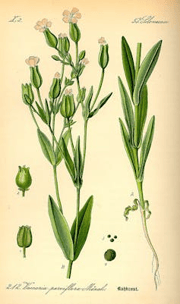
When Western Australian health authorities announced the state's 11th meningococcal case of the year, it served as a stark reminder that this potentially deadly disease remains a present threat across Australia. While the adult patient is recovering well, the announcement prompts important questions about protection, prevention, and what this means for older Australians.
The WA case joins a concerning pattern of meningococcal infections reported across Australian states in 2025, with cases ranging from young children to adults.
What makes this year's figures particularly noteworthy is that we're seeing cases across all age groups, not just the typical high-risk categories.
The bigger picture: Australia's meningococcal landscape in 2025
This isn't an isolated incident. South Australia reported a case involving a two-year-old child in February, while a 28-year-old male from regional South Australia was hospitalised with serogroup B disease in July 2024.
The pattern suggests meningococcal disease continues to circulate in communities across the country.
However, there's crucial context that provides some reassurance. Between 2003 and 2022, meningococcal disease caused an average of 12.5 deaths per year in Australia—significantly lower than the average of 24.5 deaths per year recorded in the two decades prior (1983-2002).
This dramatic improvement reflects the success of Australia's comprehensive vaccination programs.
'Between 2003 and 2022, meningococcal disease caused an average of 12.5 deaths per year in Australia—significantly lower than the average of 24.5 deaths per year recorded in the two decades prior'
What seniors need to know about symptoms
While meningococcal disease predominantly affects young children and adolescents, older adults aren't immune.
Importantly, research indicates the case fatality rate of invasive meningococcal disease is higher in the elderly, making early recognition and treatment even more critical.
Recognising meningococcal disease symptoms
The disease can progress extremely rapidly, so knowing these warning signs could save a life:
• High fever and chills
• Severe headache
• Neck stiffness
• Nausea and vomiting
• Drowsiness or confusion
• Severe muscle and joint pain
• A distinctive rash that looks like small bleeding points under the skin or fresh bruises
In Australia, most cases occur during winter and early spring, which means we're currently in the peak season for transmission. The timing makes community awareness even more vital.
Australia's vaccination success story
The dramatic reduction in meningococcal deaths represents one of modern public health's quiet victories.
The introduction of meningococcal C vaccine in 2003 resulted in a large reduction in meningococcal C disease incidence, with no notifications of meningococcal C disease in Australia recorded in 2022 [7].
The program expanded further when MenACWY vaccine was introduced on the National Immunisation Program in 2018 for toddlers aged 12 months, and in 2019 for adolescents. Some states have also introduced meningococcal B vaccination programs.
How vaccination programs protect communities
- MenACWY vaccine protects against serogroups A, C, W, and Y
- MenB vaccine protects against serogroup B (the most common type in Australia)
- Vaccines protect not only the vaccinated person but also create community immunity
- Free vaccines available for specific age groups and risk categories
Vaccination considerations for older Australians
Here's where the picture becomes more nuanced for seniors. Although new vaccines have been developed against Neisseria meningitidis, there is still a need to evaluate a vaccine for those older than 60 years, as the currently licensed vaccines are not indicated for this population.
However, this doesn't mean older adults are left without options. Meningococcal vaccination is recommended for anyone who wants to minimise their risk of invasive meningococcal disease, with individuals considered at highest risk including infants under 2 years, adolescents aged 15-19 years, and people in special risk groups.
Regular booster doses of MenACWY vaccine are recommended for people at increased risk, including those who frequently travel to areas with increased risk of exposure to meningococcal disease, with boosters administered every 3-5 years.
When seniors should consider vaccination
While routine meningococcal vaccination isn't recommended for healthy adults over 60, several circumstances might warrant discussion with your GP:
Travel considerations: If you're planning travel to regions with higher meningococcal disease rates, particularly parts of Africa or during pilgrimage seasons.
Medical conditions: People aged 2 months or older with certain medical conditions can access free meningococcal vaccines, as these conditions make them more vulnerable to invasive meningococcal disease.
Close contact situations: Living in close quarters or having prolonged contact with someone carrying meningococcal bacteria increases risk.
Protection beyond vaccination
For most older Australians, protection comes through understanding transmission and maintaining good general health practices.
Meningococcal bacteria usually spread person-to-person through close, prolonged or intimate contact, with some people carrying the bacteria in their nose and throat without developing illness.
The disease isn't easily transmitted through casual contact—you won't catch it from sharing public transport or brief social interactions.
However, bacteria are spread through sharing respiratory and throat secretions via close or lengthy contact with other people, such as kissing or living in close quarters.
The importance of swift action
Perhaps the most crucial message for all Australians, regardless of age, is understanding that meningococcal disease can progress with frightening speed.
Early treatment with antibiotics is essential, as the disease can progress very quickly, with most patients expected to recover completely if treatment is started soon enough.
The original article rightly emphasised that anyone experiencing symptoms should seek medical attention urgently.
Invasive meningococcal disease can develop very quickly and causes death in about 5 to 10 per cent of cases, but this statistic also means that 90-95 per cent of people survive with prompt treatment.
Did you know?
Did you know?
Australia's meningococcal notification rates declined dramatically from 28 per million population in 2003 to just 6 per million in 2013 following vaccination program introduction, though rates briefly increased before falling again after the ACWY program launched in 2018.
Looking ahead: continued vigilance
The recent WA case and similar reports across Australia remind us that meningococcal disease hasn't disappeared—it's just become far more manageable thanks to vaccination programs and better medical awareness.
For older Australians, this means staying informed about symptoms, discussing risk factors with healthcare providers, and understanding when vaccination might be appropriate.
While we can't eliminate all risk, Australia's experience shows that comprehensive public health strategies, combined with individual awareness, can dramatically reduce both the incidence and severity of this serious disease.
What This Means For You
The success story of Australia's meningococcal vaccination programs offers hope and demonstrates what's possible when communities, health authorities, and individuals work together toward a common goal of protection and prevention.
What's your experience with meningococcal disease awareness or vaccination discussions with your healthcare provider? Have you had conversations about travel-related health precautions that included meningococcal considerations? Share your thoughts and experiences in the comments below.
Original Article
https://www.news.com.au/lifestyle/h...8e24d02737dd6ed49e38e9d81022cb?from=rss-basic
First 2025 case of meningococcal disease
Cited text: WA Health has reported that an adult has been diagnosed with meningococcal serogroup B disease and is recovering in hospital.
Excerpt: The WA case joins a concerning pattern of meningococcal infections reported across Australian states in 2025, with cases ranging from young children to adults
https://www.health.wa.gov.au/Media-releases/2025/February/First-2025-case-of-meningococcal-disease
Meningococcal cases 25 February 2025 | SA Health
Cited text: A two-year-old child from metropolitan Adelaide is in a stable condition in hospital, after being diagnosed with invasive meningococcal disease.
Excerpt: The WA case joins a concerning pattern of meningococcal infections reported across Australian states in 2025, with cases ranging from young children to adults
https://www.sahealth.sa.gov.au/wps/...releases/meningococcal+cases+25+february+2025
Meningococcal cases 5 July 2024 | SA Health
Cited text: A 28-year-old male from regional South Australia is in a stable condition in hospital, after being diagnosed with invasive meningococcal disease ident...
Excerpt: The WA case joins a concerning pattern of meningococcal infections reported across Australian states in 2025, with cases ranging from young children to adults
https://www.sahealth.sa.gov.au/wps/...edia+releases/meningococcal+cases+5+july+2024
Meningococcal disease in Australia (2025) fact sheet
Cited text: Between 2003 and 2022, meningococcal disease caused 249 deaths in Australia, averaging 12.5 · deaths per year. This is significantly lower than the av...
Excerpt: Between 2003 and 2022, meningococcal disease caused an average of 12.5 deaths per year in Australia—significantly lower than the average of 24.5 deaths per year recorded in the two decades prior (1983-2002)
https://www.aihw.gov.au/getmedia/c6...9c8e1851d/aihw-phe-236_meningococcal_2025.pdf
Study of the Immune Response in the Elderly: Is It Necessary to Develop a Vaccine against Neisseria meningitidis for the Aged? - PMC
Cited text: The case fatality rate of invasive meningococcal disease is higher in the elderly; therefore, vaccination for this population should be evaluated.
Excerpt: research indicates the case fatality rate of invasive meningococcal disease is higher in the elderly
https://pmc.ncbi.nlm.nih.gov/articles/PMC6724425/
Meningococcal disease | The Australian Immunisation Handbook
Cited text: In Australia, most cases occur during winter and early spring.
Excerpt: In Australia, most cases occur during winter and early spring
https://immunisationhandbook.health...ne-preventable-diseases/meningococcal-disease
Meningococcal disease | The Australian Immunisation Handbook
Cited text: A meningococcal C vaccine was introduced on the National Immunisation Program in 2003 and has resulted in a large reduction in meningococcal C disease...
Excerpt: The introduction of meningococcal C vaccine in 2003 resulted in a large reduction in meningococcal C disease incidence, with no notifications of meningococcal C disease in Australia recorded in 2022
https://immunisationhandbook.health...ne-preventable-diseases/meningococcal-disease
Meningococcal disease | The Australian Immunisation Handbook
Cited text: MenACWY vaccine was introduced on the National Immunisation Program in 2018 for toddlers aged 12 months, and in 2019 for adolescents.State-funded MenB...
Excerpt: The program expanded further when MenACWY vaccine was introduced on the National Immunisation Program in 2018 for toddlers aged 12 months, and in 2019 for adolescents.
https://immunisationhandbook.health...ne-preventable-diseases/meningococcal-disease
Study of the Immune Response in the Elderly: Is It Necessary to Develop a Vaccine against Neisseria meningitidis for the Aged? - PMC
Cited text: Although new vaccines have been developed against Neisseria meningitidis, there is still a need to evaluate a vaccine for those older than 60 years, a...
Excerpt: Although new vaccines have been developed against Neisseria meningitidis, there is still a need to evaluate a vaccine for those older than 60 years, as the currently licensed vaccines are not indicated for this population
https://pmc.ncbi.nlm.nih.gov/articles/PMC6724425/
Meningococcal vaccines—frequently asked questions (FAQs) | NCIRS
Cited text: · Meningococcal vaccination is recommended for anyone who wants to minimise their risk of IMD. · Individuals considered at highest risk of meningococ...
Excerpt: Meningococcal vaccination is recommended for anyone who wants to minimise their risk of invasive meningococcal disease, with individuals considered at highest risk including infants under 2 years, adolescents aged 15-19 years, and people…
https://ncirs.org.au/meningococcal/meningococcal-vaccines-frequently-asked-questions-faqs
Meningococcal vaccines—frequently asked questions (FAQs) | NCIRS
Cited text: Regular booster doses of MenACWY vaccine are recommended for people who are at increased risk of meningococcal infection—specifically: ... people w...
Excerpt: Regular booster doses of MenACWY vaccine are recommended for people at increased risk, including those who frequently travel to areas with increased risk of exposure to meningococcal disease, with boosters administered every 3-5 years
https://ncirs.org.au/meningococcal/meningococcal-vaccines-frequently-asked-questions-faqs
Meningococcal vaccine | Australian Government Department of Health, Disability and Ageing
Cited text: people aged 2 months or older with certain medical conditions.
Excerpt: People aged 2 months or older with certain medical conditions can access free meningococcal vaccines, as these conditions make them more vulnerable to invasive meningococcal disease
https://www.health.gov.au/topics/immunisation/vaccines/meningococcal-vaccine
Meningococcal disease—immunisation | Better Health Channel
Cited text: Meningococcal ACWY vaccine and meningococcal B vaccines are also free for people with specified medical risk conditions that make them more vulnerable...
Excerpt: People aged 2 months or older with certain medical conditions can access free meningococcal vaccines, as these conditions make them more vulnerable to invasive meningococcal disease
https://www.betterhealth.vic.gov.au/health/healthyliving/meningococcal-disease-immunisation
Meningococcal disease—immunisation | Better Health Channel
Cited text: Meningococcal bacteria usually spread from person-to-person through close, prolonged or intimate contact, such as household members or intimate partne...
Excerpt: Meningococcal bacteria usually spread person-to-person through close, prolonged or intimate contact, with some people carrying the bacteria in their nose and throat without developing illness
https://www.betterhealth.vic.gov.au/health/healthyliving/meningococcal-disease-immunisation
Meningococcal vaccines—frequently asked questions (FAQs) | NCIRS
Cited text: Meningococcal bacteria are spread through the sharing of respiratory and throat secretions (saliva) via close or lengthy contact with other people, su...
Excerpt: bacteria are spread through sharing respiratory and throat secretions via close or lengthy contact with other people, such as kissing or living in close quarters
https://ncirs.org.au/meningococcal/meningococcal-vaccines-frequently-asked-questions-faqs
Meningococcal Disease—Brain Foundation
Cited text: Early treatment with antibiotics is essential, as the disease can progress very quickly.
Excerpt: Early treatment with antibiotics is essential, as the disease can progress very quickly, with most patients expected to recover completely if treatment is started soon enough
https://brainfoundation.org.au/disorders/meningococcal-disease/
Meningococcal Disease—Brain Foundation
Cited text: Patients require hospital care, but most can be expected to recover completely if treatment is started soon enough.
Excerpt: Early treatment with antibiotics is essential, as the disease can progress very quickly, with most patients expected to recover completely if treatment is started soon enough
https://brainfoundation.org.au/disorders/meningococcal-disease/
Meningococcal disease—immunisation | Better Health Channel
Cited text: IMD can develop very quickly and causes death in about 5 to 10 per cent of cases.
Excerpt: Invasive meningococcal disease can develop very quickly and causes death in about 5 to 10 per cent of cases
https://www.betterhealth.vic.gov.au/health/healthyliving/meningococcal-disease-immunisation







